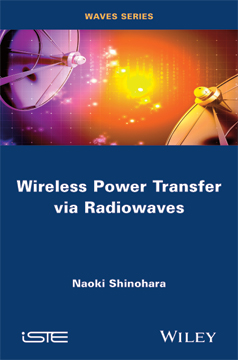
Recent advancements in the field of Wireless Power Transfer (WPT) technologies have enabled various engineering applications with the potential for product implementation. WPT via radiowaves is a valuable technology that can be used to charge batteries in mobile phones, notebook PCs, electric vehicles (EVs), as well as battery storage for light-emitting diodes (LEDs), integrated circuits […]
Recent advancements in the field of Wireless Power Transfer (WPT) technologies have enabled various engineering applications with the potential for product implementation.
WPT via radiowaves is a valuable technology that can be used to charge batteries in mobile phones, notebook PCs, electric vehicles (EVs), as well as battery storage for light-emitting diodes (LEDs), integrated circuits (ICs), and other equipment. Energy harvested from ambient radio frequency (RF) and microwave radiation can be used, and 1 million kW of microwave energy can be transmitted from space to the ground. These advancements in WPT have significant implications for developments in the field of humanospheric science. In the near future, stable CO2-free electric power from space will be possible using WPT technology, which could help address the conflict between increasing energy demands and environmental concerns.
The author explores the different technologies of WPT, such as microwave generators with semiconductor and microwave tubes, antennas, phased arrays, beam efficiency, and rectifiers (rectennas). These are described by comparing a coupling WPT. The book also covers the applications of WPT, such as energy harvesting, sensor networks, point-to-point WPT, WPT to moving target (airplanes, vehicles, etc.), and solar power satellites, making it suitable for all specialists in the field of WPT and RF.
